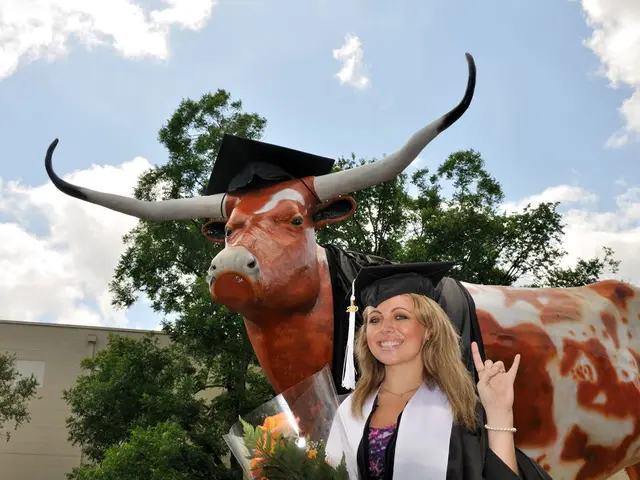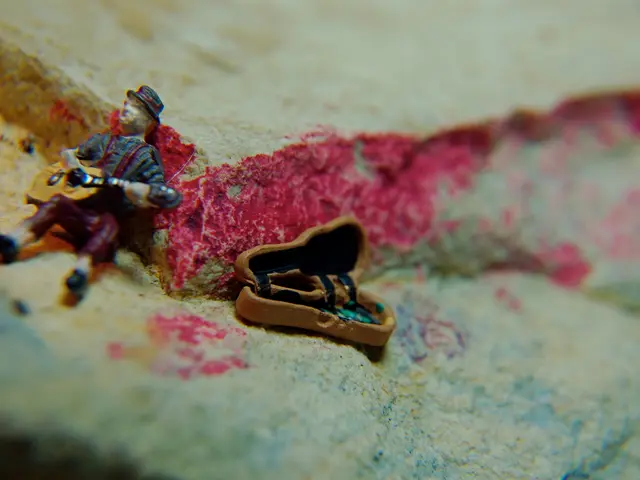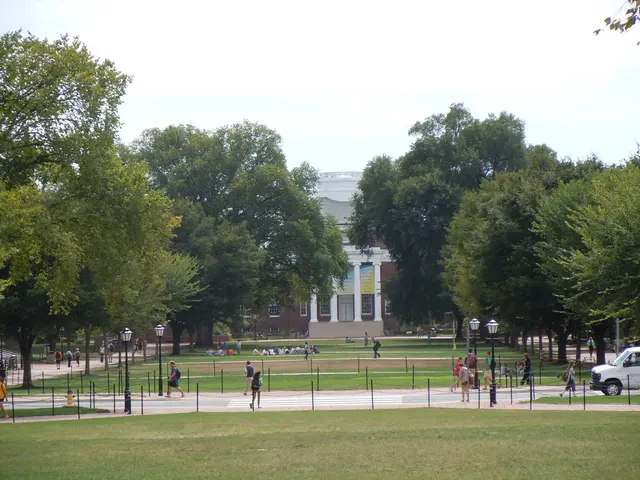Grasping the Objectives of Instruction within Existentialist Philosophy
Existentialism, a philosophy rooted in individual choice, freedom, and responsibility, posits that life lacks an inherent purpose, and it is up to each person to create their own meaning. This philosophy holds that education should foster self-awareness and personal growth, empowering students to navigate life's uncertainties with courage and authenticity.
In the context of traditional education, with its rigid structures, existentialist education prioritizes personal experience and critical questioning. By encouraging students to take responsibility for their learning and decisions, this approach prepares them to face life with greater resilience and a sense of purpose. Learning is seen not only as the acquisition of knowledge but also as a means to self-discovery.
The roots of existentialist education can be traced back to the 19th and 20th centuries, with philosophers like Søren Kierkegaard, Friedrich Nietzsche, Jean-Paul Sartre, and Simone de Beauvoir shaping its core ideas. Their works challenged the status quo, promoting education as a deeply personal journey rather than mere conformity to external expectations. Existentialist philosophers viewed traditional education as passive, calling for a shift towards active learning, self-reflection, and personal exploration.
In the 20th century, educational philosophers like Maxine Greene and Paulo Freire advanced the idea of student-centered learning, aligning it with the existentialist emphasis on personal growth and self-discovery. This approach encourages students to question, explore, and define their own purpose, challenging conventional teaching methods that prioritize memorization and external authority. By fostering this mindset, existentialist education equips students with the tools to navigate the complexities of life.
Authenticity, personal responsibility, individual freedom, and self-awareness are central to existentialist education. It seeks to develop individuals who question societal norms, challenge ideas that are not in alignment with their personal experiences, and live with integrity. Education should encourage students to explore their own beliefs, values, and aspirations, fostering an environment where they feel safe to express themselves without fear of judgment. This approach emphasizes self-awareness and helps individuals live more authentically, taking ownership of their choices and building a life that aligns with their true selves.
Personal responsibility is a cornerstone of existentialist thought, with individuals seen as the architects of their own existence. In an educational setting, this calls for active participation in the learning process. Students are required to engage with material, ask questions, and seek understanding on their own terms. By recognizing the consequences of their choices, both academic and personal, students are better prepared for life beyond school and the complex decisions they will face.
Promoting individual freedom in the classroom is crucial for an existentialist education. Instead of imposing rigid structures, existentialist education seeks to empower students to explore subjects that interest them, develop their own opinions, and shape their educational experiences. Open-ended assignments, student-led discussions, and project-based learning are examples of methods that enable this freedom, fostering intellectual curiosity and independent thought.
Existentialist education also addresses existential angst, the deep anxiety that arises from facing the unknown. Instead of eliminating this anxiety, it seeks to help students understand and navigate it. By recognizing the complexities of life, educators can help students develop resilience, leading to more engaged and self-reliant learners.
Nurturing individualism and independent thought is another key aspect of existentialist education. By encouraging self-exploration, creativity, and personal expression, this approach helps students develop their own perspectives rather than simply adopting the views of teachers or textbooks. This fosters a more supportive learning environment where students feel empowered to form and defend their own ideas, leading to more motivated and self-reliant learners.
Existentialist education integrates opportunities for self-exploration, such as through literature, philosophy, art, or personal reflection. By using these tools to ask big questions and engage in deeply personal and meaningful discussions, students can deepen their understanding of life, themselves, and their role in the world. Existentialist education equips students with the intellectual and emotional tools to navigate an unpredictable world, fostering critical thinking, personal responsibility, and genuine personal growth.
In conclusion, existentialist education centers around promoting authenticity, fostering personal responsibility, and emphasizing individual freedom. By challenging students to think critically and create their own meaning, it prepares individuals for life beyond the classroom, fostering genuine personal growth and equipping students with the tools to navigate a complex and ever-changing world.
- Existentialism, with its focus on individual choice and self-discovery, asserts that life has no inherent purpose, encouraging each person to craft their own meaning.
- Existentialist education prioritizes personal experience and critical questioning, aiming to foster self-awareness and personal growth.
- Learning in the context of existentialist education is seen as more than just knowledge acquisition; it's a means of self-discovery.
- Philosophers like Kierkegaard, Nietzsche, Sartre, de Beauvoir, Greene, and Freire have shaped the core ideas of existentialist education, challenging conventional teaching methods and promoting personal growth.
- Existentialist education fosters an environment where students question societal norms, challenge misaligned ideas, and live with integrity, based on their personal beliefs, values, and aspirations.
- Active participation, self-reflection, and personal exploration are essential components of existentialist education, preparing students for life's uncertainties and complex decisions.
- Nurturing intellectual curiosity, independent thought, and creativity is vital in an existentialist classroom, enabling students to explore their interests and develop their own opinions.
- Existentialist education helps students understand and navigate existential angst, promoting resilience and self-reliance in students, and integrating self-exploration through literature, philosophy, art, or personal reflection.




